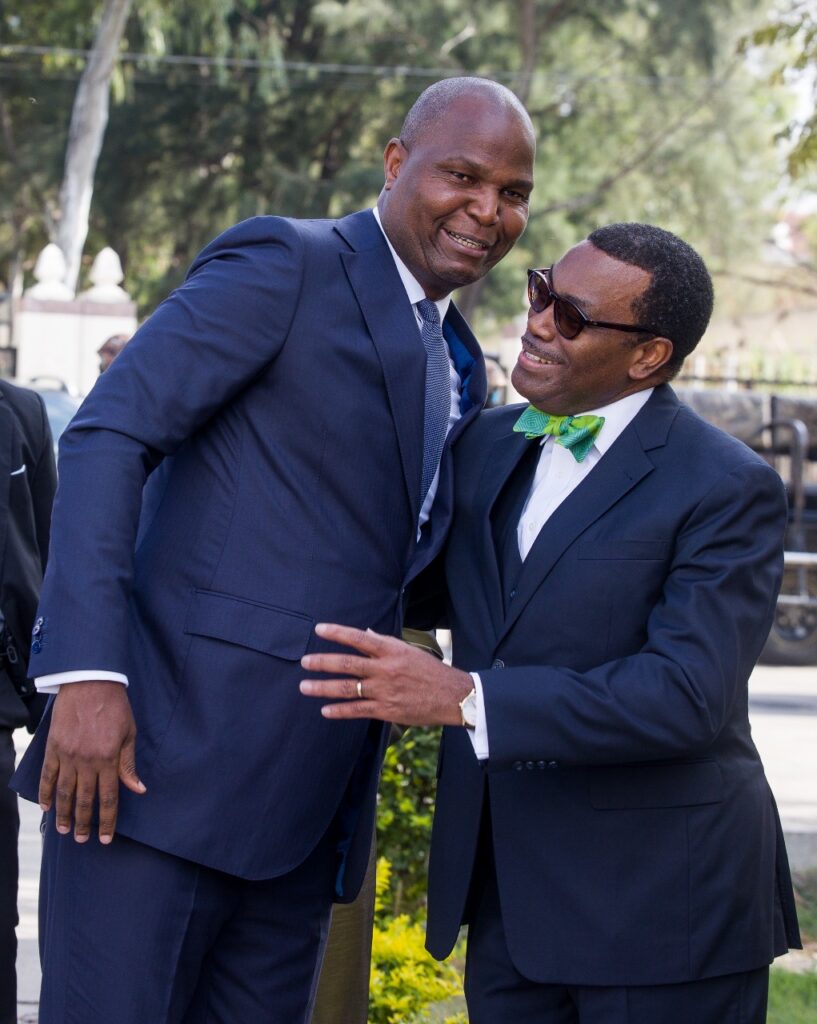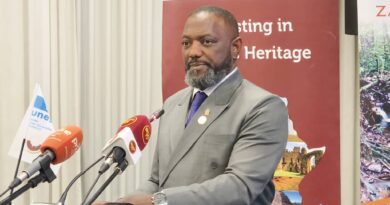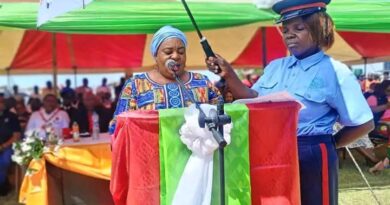Mozambique President Praises AfDB’s Adesina for 10 Years of Impact
Mozambique’s President Daniel Chapo has praised Dr Akinwumi Adesina for a decade of “transforming ambition into outcomes” during his tenure as President of the African Development Bank Group, crediting his leadership with positively impacting millions of lives across Africa.
Speaking at the opening of the Africa50 General Shareholders Meeting in Maputo on Wednesday, President Chapo also commended Adesina’s role as Board Chair of Africa50, an investment platform created by African governments and the Bank to bridge the continent’s infrastructure funding gap.
“Your legacy is not just institutional but impacting the lives of Africans, and we thank you and wish you the most success for what the future has in store for you,” President Chapo said.
Africa50 Chief Executive Officer Alain Ebobissé also paid tribute to Adesina, citing his vision behind the Alliance for Green Infrastructure in Africa (AGIA), which aims to catalyse up to $10 billion in green infrastructure opportunities for private sector investment.
A fireside chat, moderated by Nozipho Mbanjwa-Tshabalala, CEO of The Conversation Strategists, explored Adesina’s decade of institutional transformation, record-breaking achievements, and his role in boosting global confidence in Africa’s development prospects.
In his remarks, Adesina called for Africa’s vision to be bold, collective, and result-driven, particularly in delivering essential infrastructure such as power generation.
“Economies that don’t have power can never grow. It’s a direct correlation with your GDP growth and access to electricity. You can’t create jobs, you can’t industrialise, and sadly, you are not going to be competitive in the dark,” he said.
Challenging the perception of Africa as a high-risk investment destination, Adesina referenced Moody’s data showing cumulative losses on African infrastructure investments at just 1.9% over 15 years, lower than in other regions. He urged investors to “get great returns in Africa” while benefiting from the support of strong institutions.
He also emphasised the need to harness the potential of Africa’s 420 million young people. “If you don’t create youth-based wealth, who is going to pay the taxes in the future?” he asked.
Under Adesina’s leadership, the Bank’s capital rose from $93 billion in 2015 to $318 billion in 2024, enabling its “High 5s” initiatives to improve the lives of 565 million Africans in areas such as energy, food security, industrialisation, regional integration, and quality of life.
The Bank was ranked the world’s best multilateral financing institution for two consecutive years and maintained AAA credit ratings throughout his tenure, including during the COVID-19 pandemic.
Africa50 also flourished under his stewardship, growing to $1.4 billion in managed assets, a total portfolio company value exceeding $8 billion, and 33 active projects in energy, transport, digital infrastructure, healthcare, and education across 32 countries. It raised $275 million for the Africa Infrastructure Acceleration Fund from more than 20 African institutional investors.
As Adesina prepares to step down on 1 September 2025, he reflected: “My legacy is not a personal one. My legacy is an Africa strong enough to deliver finance for its transformation at scale, we have come of age, and we can handle issues by ourselves and deliver.”



